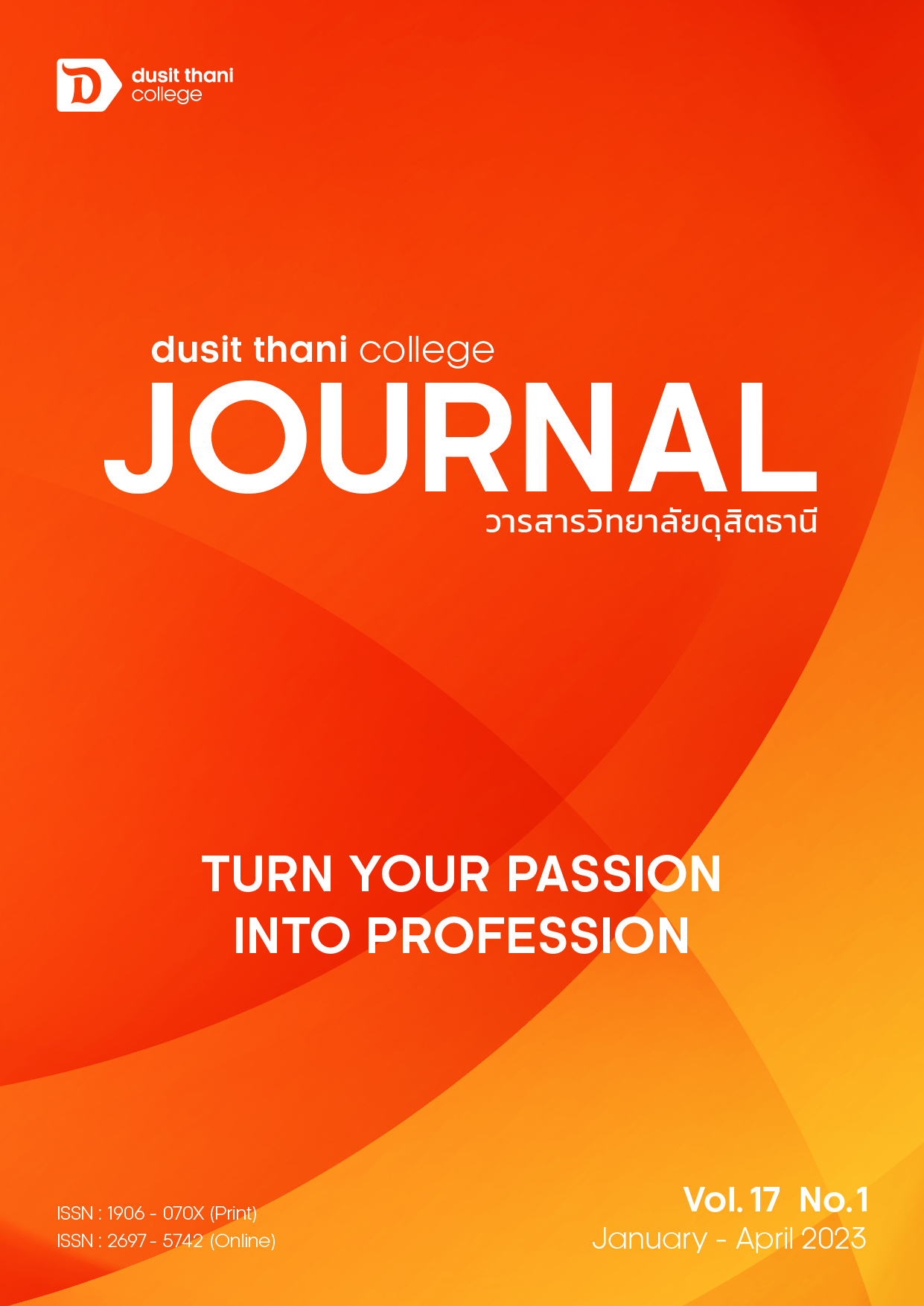Perceptions of Health and Intention to Avail Cremation Services Within Urban and Rural Communities: A Comparative Case Study of Bangkok and Chachoengsao Provinces
Main Article Content
Abstract
The primary objectives of this study are as follows: 1) to examine the correlation between demographic perspectives and health outlooks among urban and rural communities; 2) to analyze the factors influencing their intentions towards utilizing funeral business services; 3) to provide recommendations and principles for the development of funeral businesses.
To achieve these goals, a mixed methods research design is employed, integrating both qualitative and quantitative approaches. The quantitative aspect involves a questionnaire survey administered to a sample of 800 individuals residing in both Bangkok and Chachoengsao provinces. This survey aims to empirically test a theoretical model concerning urban and rural individuals' perceptions of health preparations. Additionally, the qualitative component involves conducting interviews with five funeral business owners to gain insights into their past and current business operations and performances. By combining the findings from both quantitative and qualitative research, this study aims to identify factors that can effectively guide the growth and development of funeral businesses.
The study's results indicate that demographic perspectives significantly influence the health perceptions of urban and rural individuals. Specifically, individuals from Bangkok exhibit higher psychological perceptions and stronger intentions to engage with funeral business services. These research findings hold substantial implications for funeral businesses in formulating marketing strategies and strategic guidelines to foster growth.
Article Details

This work is licensed under a Creative Commons Attribution-NonCommercial-NoDerivatives 4.0 International License.
Article Screening Policy
- All research and academic articles to be published must be considered and screened by three peer reviews in the relevant field / article.
- All articles, texts, illustrations and tables published in the journal are the personal opinions of the authors. Editors don't always have to agree. And no responsibility whatsoever is the sole responsibility of the author.
- The articles to be published must never be published. Where did you first publish? And not in the consideration of other journals If the audit found that there has been a duplicate publication It is the sole responsibility of the author.
- Any article that the reader sees as being plagiarized or impersonated without reference. Or mislead the work of the author Please let the journal editor know it will be your greatest blessing.
References
Ajzen, I. (1991). The theory of planned behavior. Organizational Behavior and Human Decision Processes, 50(2), 179–211.
Bai, X., Liu, C., Song, Y., & Sörensen, S. (2022). Adaptation and validation of the Preparation for Future Care Needs Scale for Chinese older adults in Hong Kong. The Gerontologist, 62(7), e357-e368.
BUMBA, A., & VAIDA, S. (2020). THE CONCEPT OF DEATH. FROM SOCRATES TO ELLIS. Studia Universitatis Babes-Bolyai, Psychologia-Paedagogia, 65(2).
Chaiyo, W. (2020). The attitude towards the meaning of life and death of adolescents. The 12thNPRU National Academic Conference Nakhon Pathom University. 2553-2560
Kotler, P., Armstrong, G., & Opresnik, M. O. (2021). Principles of Marketing (Eighteenth). Pearson Education Limited
Lott, O. (2020). Give Me a Clean Death: Rethinking Our Modern Death-Care System. University of Washington.
Munmueang, N., &. Rungkoon, A. (2020). Funeral Business Model in the New Normal Era. Journal of Modern Learning Development, 5(5). 112-122
Pimpare, W., & Suksonghong, K. (2019).The Relationship between Board Demographic Diversity and Firm Performance. Journal of Liberal Arts and Management Science Kasetsart University, 6(2), 9-26.
Smock, P. J., & Schwartz, C. R. (2020). The demography of families: A review of patterns and change. Journal of Marriage and Family, 82(1), 9-34.
Sinlaparojanapanich, S. (2016, March 14). เรื่องเกิดเขาไม่ใช่ แต่เรื่องตายเขาชำนาญ! "ฟิวเนอรัล เซอร์วิส"บริษัทรับจัดงานศพ. MGR Online. Retrieved April 29, 2023, from
https://mgronline.com/onlinesection/detail/9590000026609 Sujaritwarakul, M., & Somanusorn, S. (2018). Factors Related to Death Preparation
among Thai Buddhist Elderly. Kuakarun Journal of Nursing, 25(1), 154-169.
Sukmee, T. (2016). Funeral traditions: commoditization in consumerism. (Degree of Master of Arts in Human and Social Development). Prince of Songkhla University, Songkhla.
The National Statistical Office of Thailand. (2020). Informal employment Survey 2020. Retrieved from http://www.nso.go.th/
Vesci, M., & Botti, A. (2019). Festival quality, theory of planned behavior, and revisiting intention: Evidence from local and small Italian culinary festivals. Journal of Hospitality and Tourism Management, 38, 5-15.
Wang, C., Zhang, J., Yu, P., & Hu, H. (2018). The theory of planned behavior as a model for understanding tourists’ responsible environmental behaviors: The moderating role of environmental interpretations. Journal of Cleaner Production, 194, 425-434.


